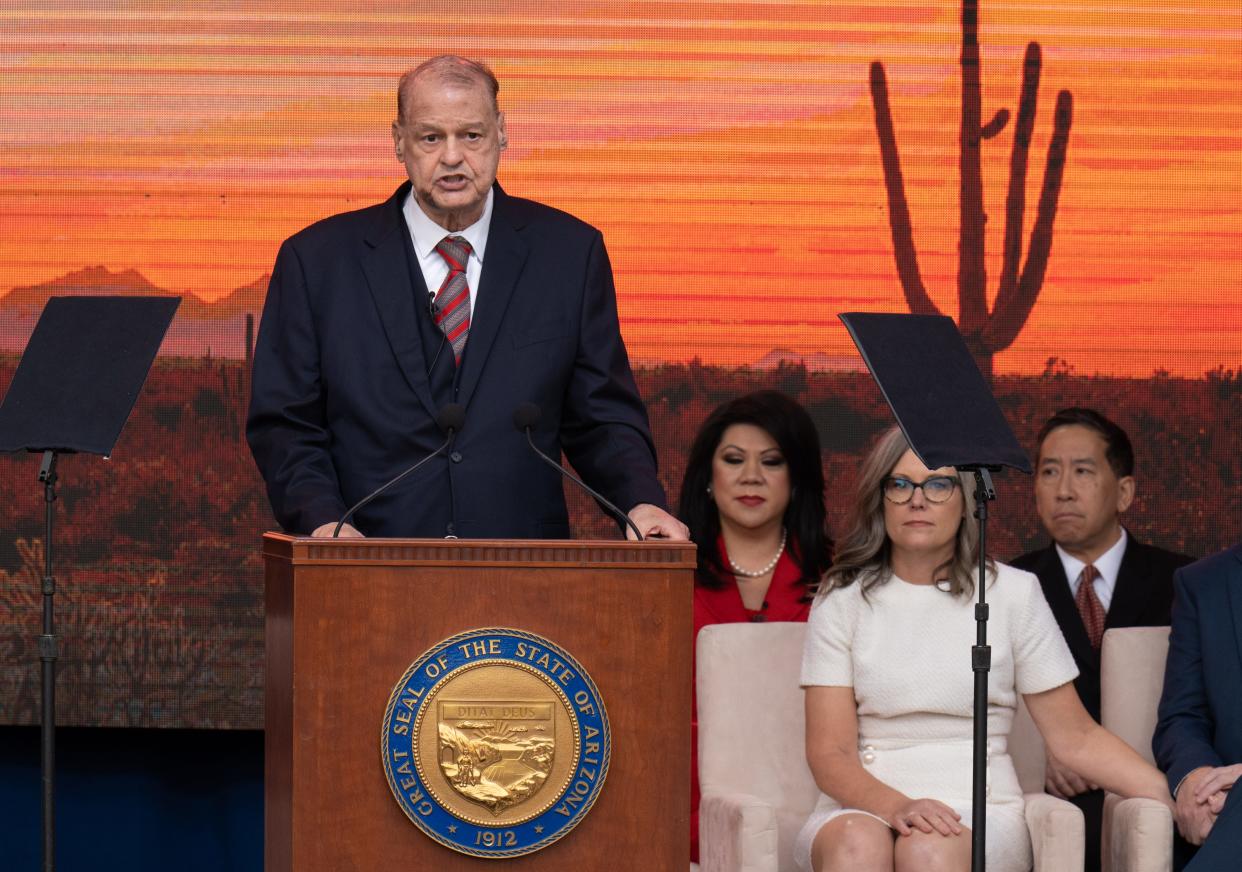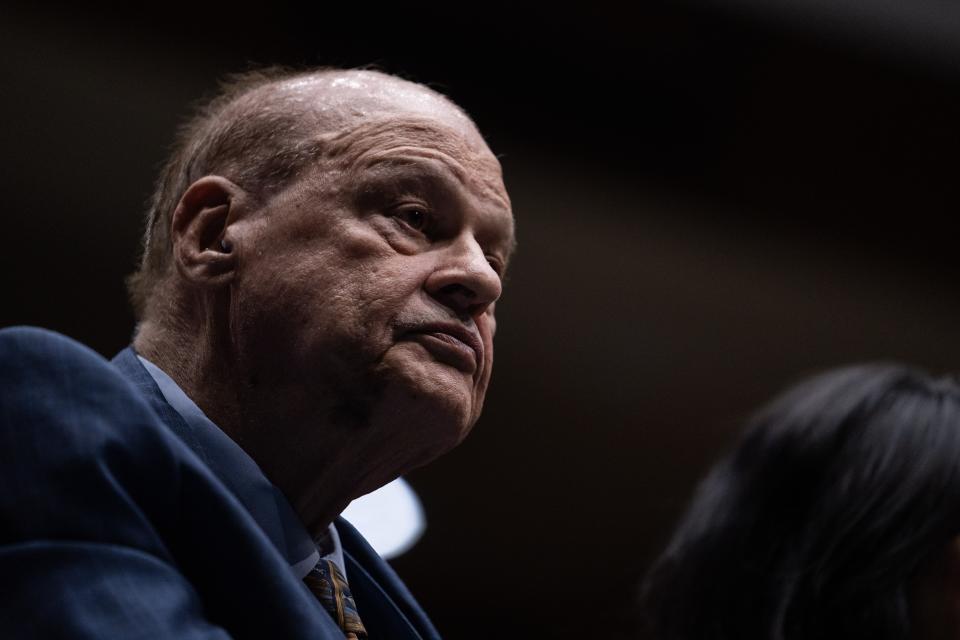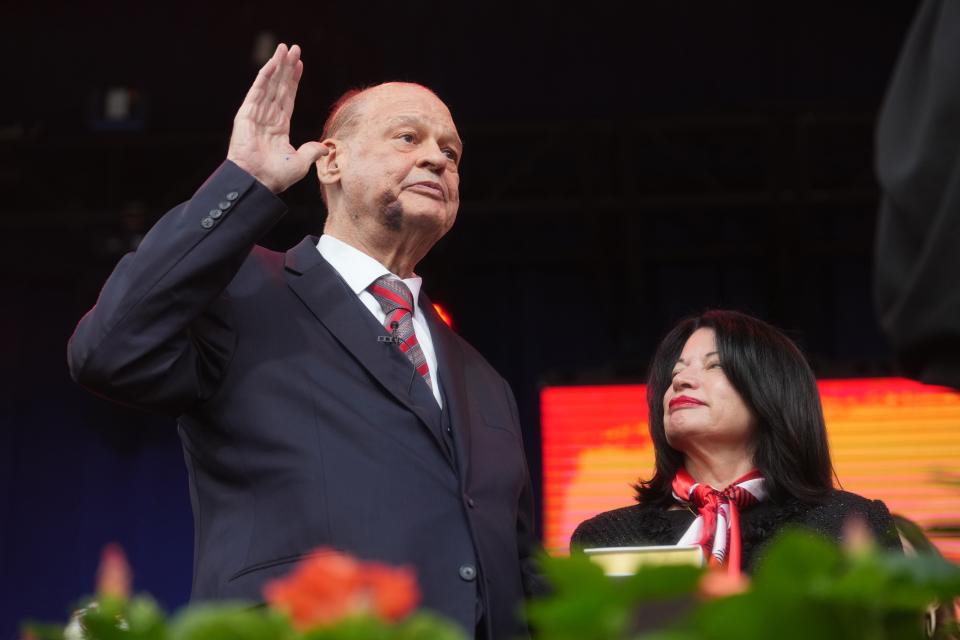State school superintendent starts hotline for public to report 'inappropriate' lessons

People who want to report lessons that allegedly use critical race theory or emotional support curriculum rejected by Arizona’s new superintendent can now do so through a hotline launched this week.
The Arizona Department of Education’s “Empower Hotline” will take calls during weekday business hours. It’s a key campaign promise of newly elected superintendent Tom Horne, who ran on a platform that promised to focus on math and reading instruction and “declare war” on conversations about emotions and identity.
Arizona residents should report “inappropriate lessons that detract from teaching academic standards,” the department said on its website. That includes topics like social and emotional learning or that could be considered critical race theory.
Critics say that effort is a waste of limited educational resources — and only will heighten the political tensions that have pushed teachers out of the classroom.
This effort “continues to politicize and disrespect educators and their profession and the relationships that they have with their families,” said Arizona Education Association president Marisol Garcia.
Arizona is not the first state to try to tackle allegations of divisive teaching with a hotline.
Virginia’s governor started a similar call line for critical race theory reports but shut it down in November when parents used it primarily to report special education violations and praise teachers.
If a teacher or staff member is named in a hotline complaint, said Horne, the department will dispatch an investigator to that school. Investigators will request the teachers stop the alleged wrongful instruction, and if they do not do so, will consider discipline through a process laid out by the state board.
The State Board of Education is responsible for approving disciplinary action on an educator.
Garcia said she worries the hotline will circumvent the structures already set up in schools to deal with disputes about instruction: namely, parents speaking directly to teachers or school administrators.
“It really does put teachers in a place where they have no idea they even had a complaint lodged against them,” Garcia said. “People lose due process rights.”

Horne said he was very conscious “there will be false charges,” but his background as an attorney would help stop anyone from being wrongfully disciplined.
But, he said, if teachers were concerned they couldn’t “push their personal ideology on a captive audience,” they should move to Oregon or California.
Emails sent to the hotline will be subject to public records requests, the department noted, but Horne said officials have not yet developed a protocol for phone calls or voice messages.
A series of efforts to monitor instruction
The hotline is the latest effort by the Horne administration to restrict the teaching of subjects that do not meet its conservative priorities.
The school superintendent's office has a primarily administrative function. Officials said they would not recommend new grant funding for school counselors and social workers to schools that already have a police officer or armed security guard on campus. But they also are bound by terms laid out in a grant plan from the administration of Kathy Hoffman, the previous school superintendent. The upcoming grant cycle will prioritize 75 schools that applied for money to hire law enforcement officers in the last grant cycle but did not receive it.

In January, the department limited presentations on racial trauma, gratitude, creating a culture of care, diversity and equity skills for school leaders and family engagement at an educator conference hosted by the department.
Horne’s department is also crafting a proposal to change the A-F school grading formula to reflect whether schools take part in values-based teaching standards — as defined by the Horne administration.
Race in classrooms: a contested topic area
Critical race theory is an academic concept examining how race impacts U.S. institutions that some conservatives use to characterize any race-related instruction. Horne, during his campaign to replace Democrat Kathy Hoffman as Arizona's superintendent of public instruction, declared "war" on critical race theory.
Whether critical race theory is actually taught in any K-12 Arizona schools is disputed by many educators, but the Horne administration says they have heard first-hand accounts of its use from classroom teachers.
“It’s an ideology that can wear many different labels,” says an explainer on the Department of Education’s website. Mentions of whiteness, white privilege and white supremacy are all signs that critical race theory instruction may be happening, it said.
The Horne administration considers social and emotional learning, as well as diversity and equity, to be “Trojan horses” for critical race theory instruction.
The Collaborative for Academic, Social, and Emotional Learning, a national non-profit credited with developing the concept of social and emotional learning, describes it as a tool to help young people regulate their emotions, establish and maintain relationships and show empathy for others — all skills the organization says are essential to learning.
Yana Kunichoff is a reporter on The Arizona Republic's K-12 education team. You can join The Republic's Facebook page and reach Yana at ykunichoff@arizonarepublic.com.
This article originally appeared on Arizona Republic: State schools chief Tom Horne opens hotline for 'inappropriate' lessons
